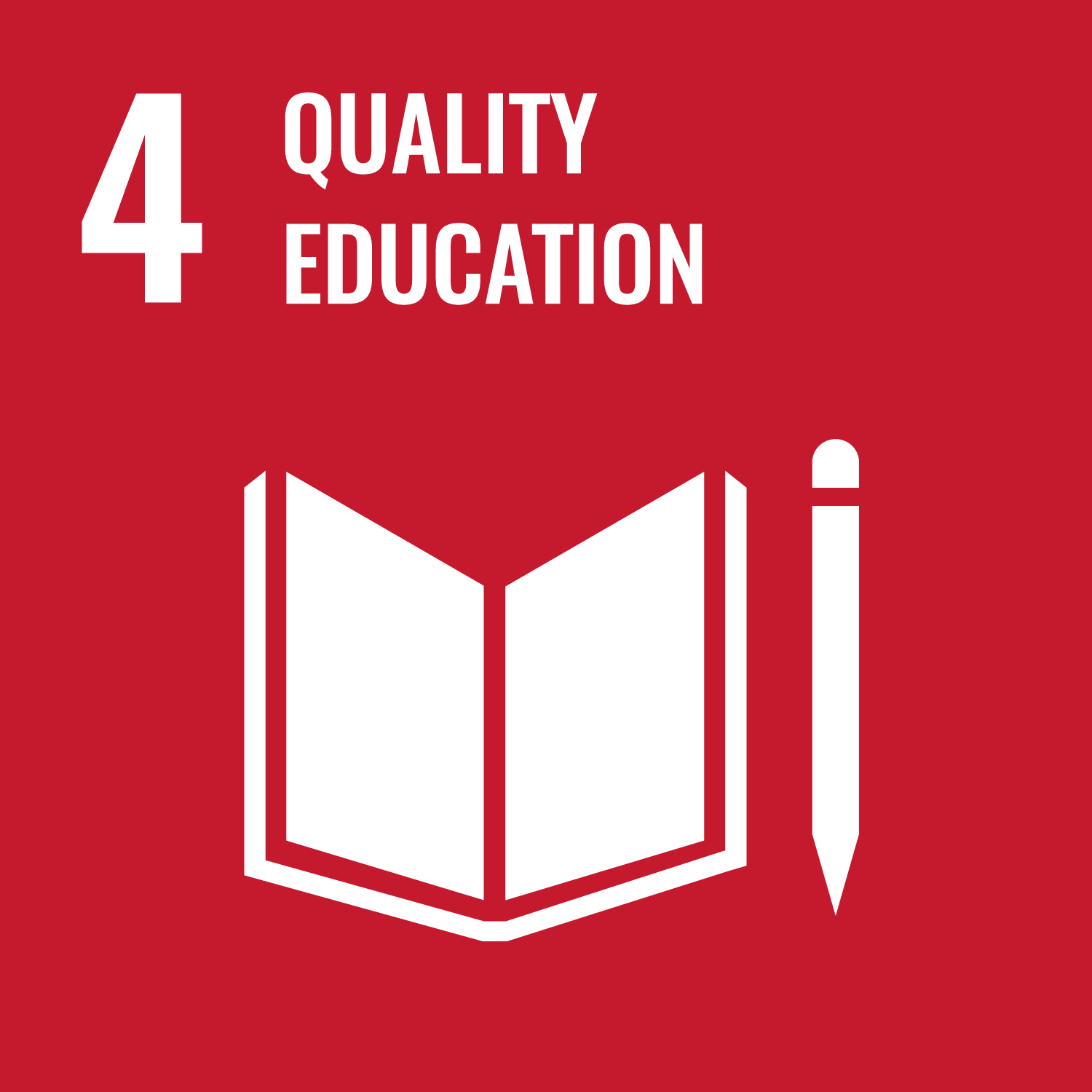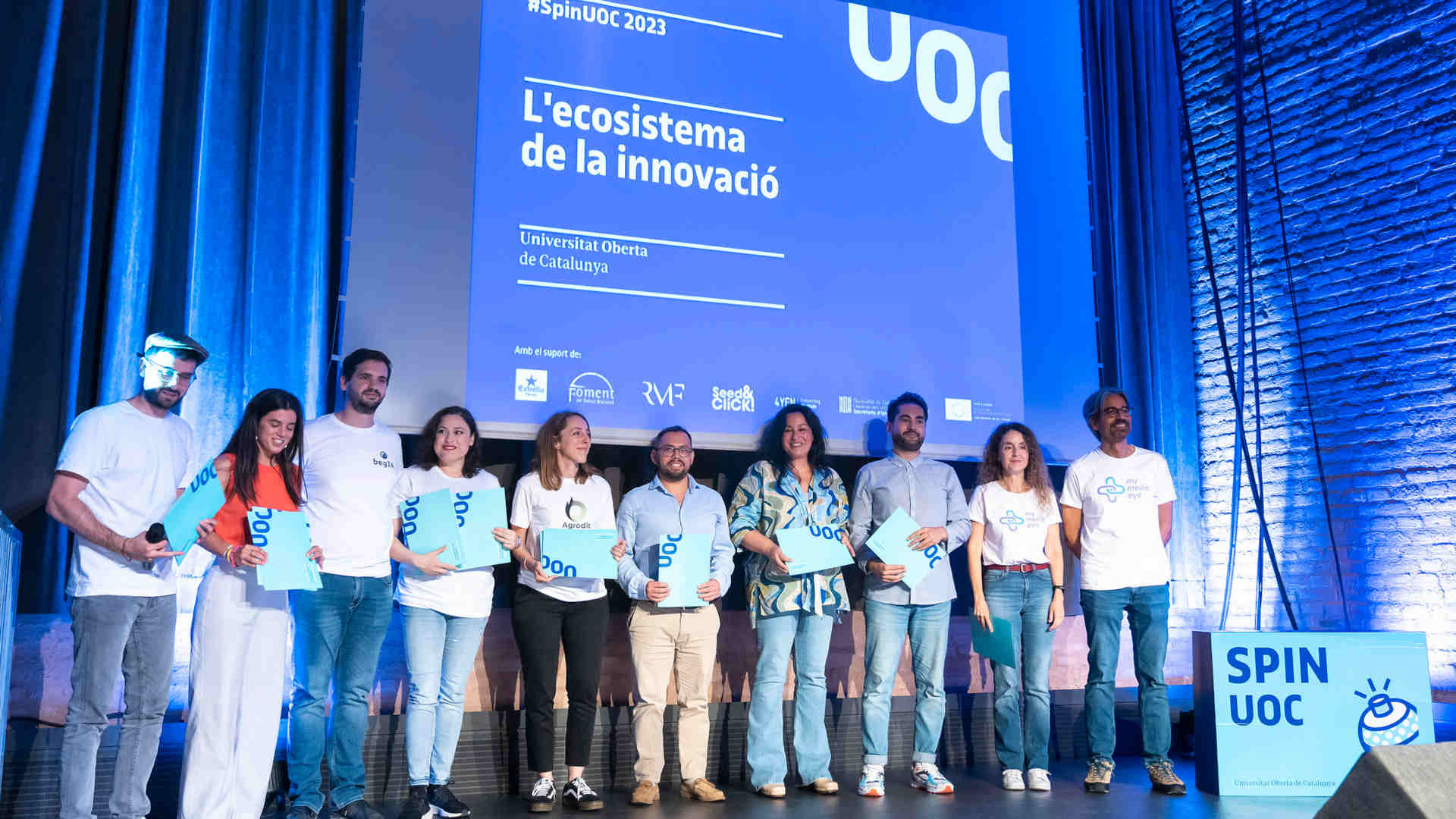Langtern app harnesses the power of AI to help language teachers prepare their lessons
The app gives creative control over lessons, providing tools to find real content on the topics and at the level that students needThe project was one of the finalists in SpinUOC 2024, the UOC's entrepreneurship programme

One of the aims of Langtern, a finalist in this year's SpinUOC entrepreneurship programme at the Universitat Oberta de Catalunya (UOC), is to make the work of language teachers easier by means of tools that use artificial intelligence (AI) to prepare lessons more efficiently. Laura Gutiérrez and Noé Casas, participants in the EduTECH Emprèn programme, are the brains behind the platform, an innovative tool that allows teachers to create their own teaching materials quickly and easily thanks to its content search engines and AI.
According to Gutiérrez and Casas, the project began with the intention of "meeting the need of one of the founders as a student of Chinese". It was Casas who realized that "there were no apps that were really useful for making the leap from the language level of textbooks to that of real material". So, as a programmer with a PhD in Artificial Intelligence, he "created his own app".
“The project partners believe that there's a lot of talk about AI replacing language teachers, but they believe in using AI to empower them”
After launching the project and researching the market, the entrepreneurs quickly realized that most language students "do not see enough value in language apps to pay for them". So, as they explained, they decided to shift their focus to language teachers, to whom they felt they could offer more value.
Langtern's creators believe that their competitors are textbooks, as well as platforms for language learning materials. "In both cases, the materials are ready-made", they said. "Texts that use simplified language, with content of little interest and no tailoring to students." They claim that their app gives language teachers "creative control over their lessons, with tools to easily find real content on any topic they want and at the level their students need, and an AI that automatically prepares these materials based on the selected content".
Laura Gutiérrez presenting Langtern at SpinUOC on 27 June
The project's main strength
Comparing Langtern to its competitors, the entrepreneurial duo believes that its main strength lies in its focus. "Our competitors focus on teachers who don't want to spend time looking for content and preparing teaching materials based on it", they said. "We focus on teachers who work hard on their lessons, and we give them superpowers so that they can get results without investing an absurd amount of their own time."
One of the key aspects of the project is undoubtedly the integration of AI. "It's a key part of our value proposition", they said. The project partners believe that "there's a lot of talk about AI replacing language teachers", but instead of this approach, they believe in using "AI to empower them". "Thanks to it, and through Langtern, teachers can maximize the personalization of their language lessons to their students", they said.
A commercial boom
The project is currently in a commercial expansion stage, a process of attracting its first customers. They are doing this in good conditions, "thanks in particular to the visibility generated by having a stand at 4YFN during the Mobile World Congress 2024 with the UOC". For Gutiérrez and Casas, their participation in SpinUOC has been like a "springboard" that will give them "the necessary momentum to boost our sales". "As a bonus, we've worked on our message with first-class communications professionals," they added.
The goal for this year is to "put Langtern on the language teaching map". The main market is teachers of English and Chinese, both in Spain and in Latin America, "but without losing sight of the potential of the Asian markets, where the demand for language teaching is huge". The project partners are confident that their value proposition will attract language teachers from these markets and pave the way for them to penetrate other markets by supporting new languages.
What does Langtern offer?
The platform provides a database of online materials including YouTube videos, news items and short stories, searchable by keyword and difficulty level. The AI engine automatically creates exercises from these materials, which students can complete on the mobile app or website. Langtern adapts to the needs of both freelance teachers and language schools, with various subscription plans depending on the level of service required.
This project contributes to United Nations Sustainable Development Goal (SDG) 4: Quality education.
UOC R&I
The UOC's research and innovation (R&I) is helping overcome pressing challenges faced by global societies in the 21st century by studying interactions between technology and human & social sciences with a specific focus on the network society, e-learning and e-health.
Over 500 researchers and more than 50 research groups work in the UOC's seven faculties, its eLearning Research programme and its two research centres: the Internet Interdisciplinary Institute (IN3) and the eHealth Center (eHC).
The university also develops online learning innovations at its eLearning Innovation Center (eLinC), as well as UOC community entrepreneurship and knowledge transfer via the Hubbik platform.
Open knowledge and the goals of the United Nations 2030 Agenda for Sustainable Development serve as strategic pillars for the UOC's teaching, research and innovation. More information: research.uoc.edu.
Experts UOC
Press contact
-
Anna Sánchez-Juárez


